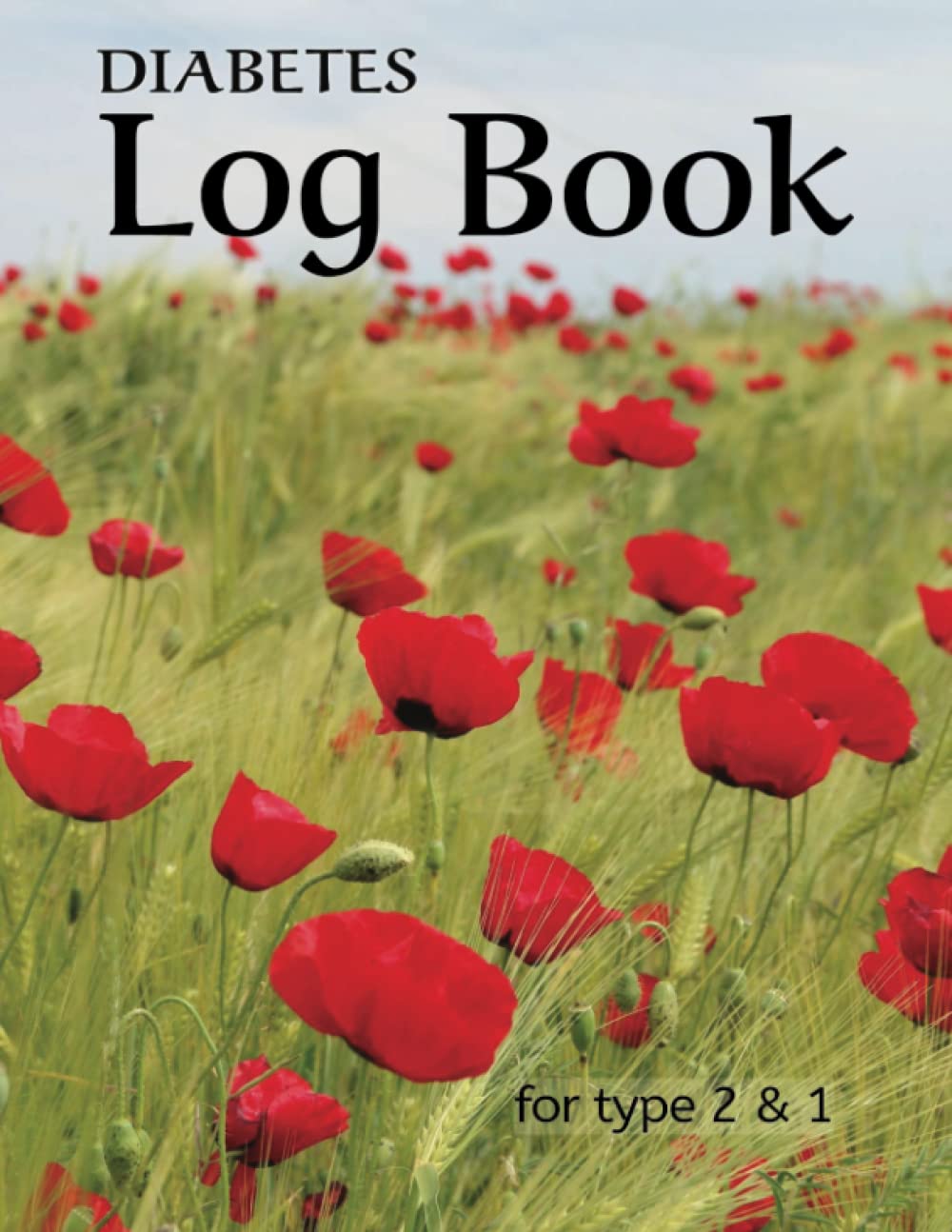Log book for diabetes
A log book for diabetes is an excellent way to recognize healthy and unhealthy behaviors as we record data from a CGM device. It's best to write down meals and how you respond to those meals. Each meal will include what you eat and the amount. It will also show how your body reacted to it a little later. If that meal puts you over the 180 peak then consider substituting certain carbs and also reducing portions.
Your log book for diabetes should include a daily log where you enter date, time and meal. It's even better if you have a part where you can enter the exact food you ate and how your body responded to it. This is the best way to write down your body's feedback so you start creating patterns to follow.
I created a log book for my own needs and included everything I need to keep track of my progress or pitfalls. You can find that log book here.
log book for diabetes contents
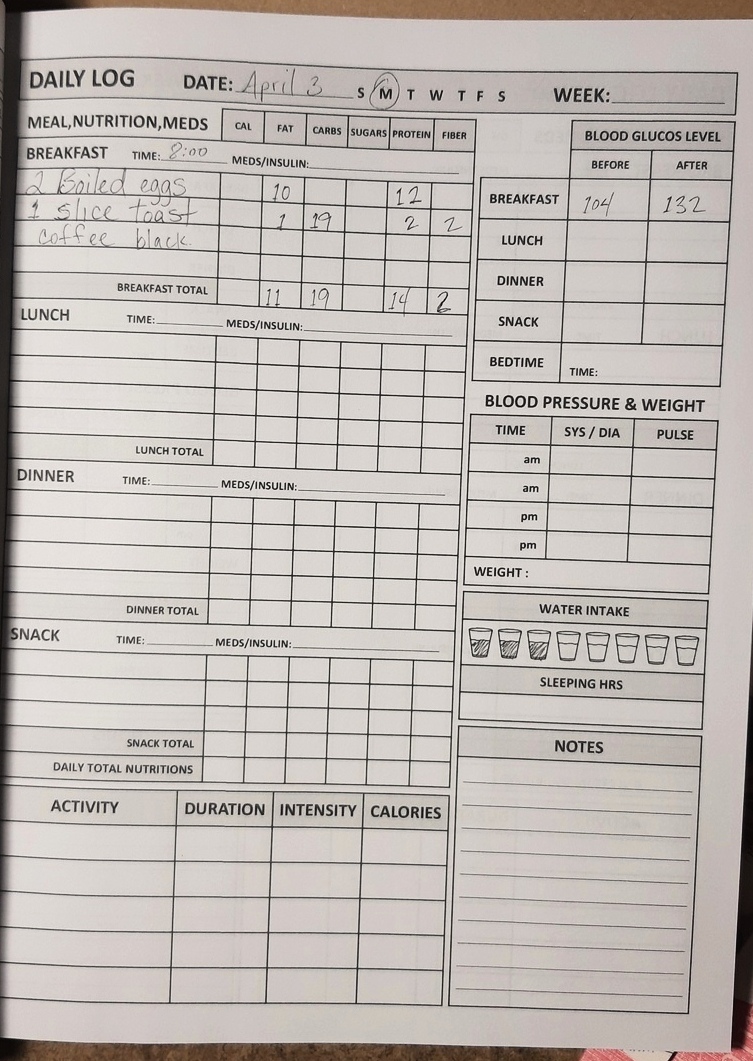
It's helpful if the log book has a section where you can write down your medicine and the dosage you take. This can help you see if you have any changes in your prescription medications over the space of a few months. You will be aware of increases or decreases of your meds to help give you a clearer picture of your progress.
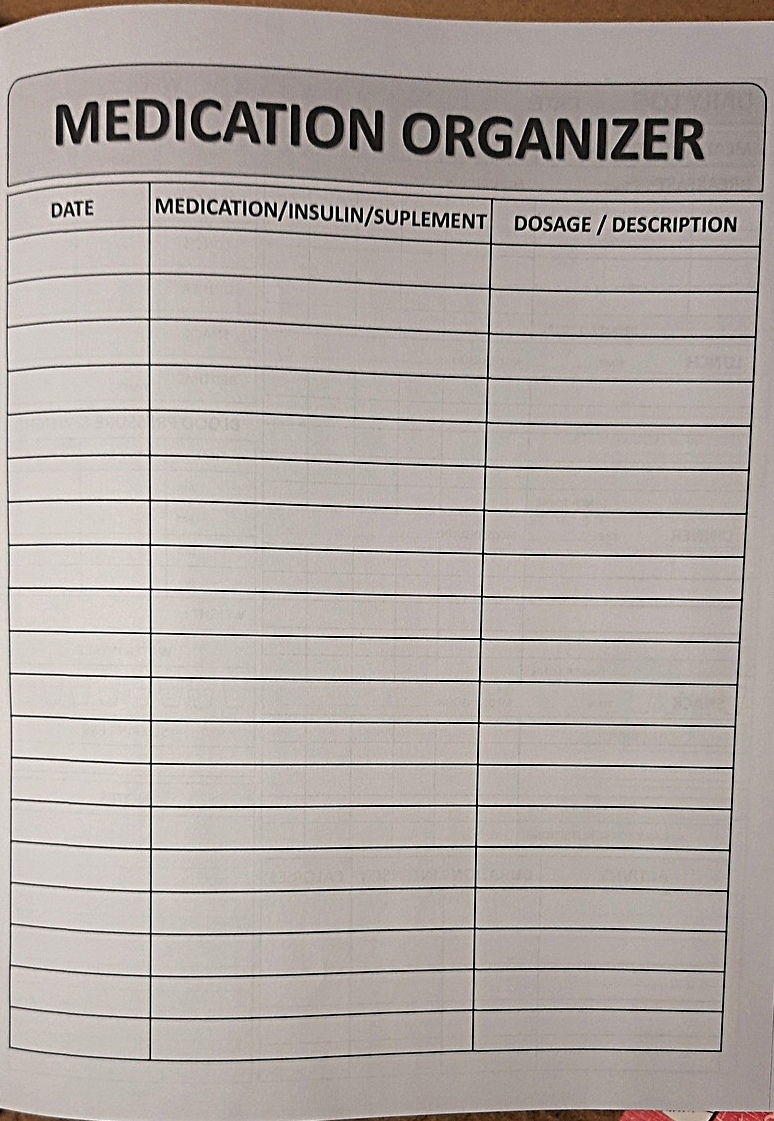
I included important blood glucose numbers that I wanted to commit to memory by seeing them several times a day. It's helpful to see what your baseline levels should be as you compare your own numbers to the chart.
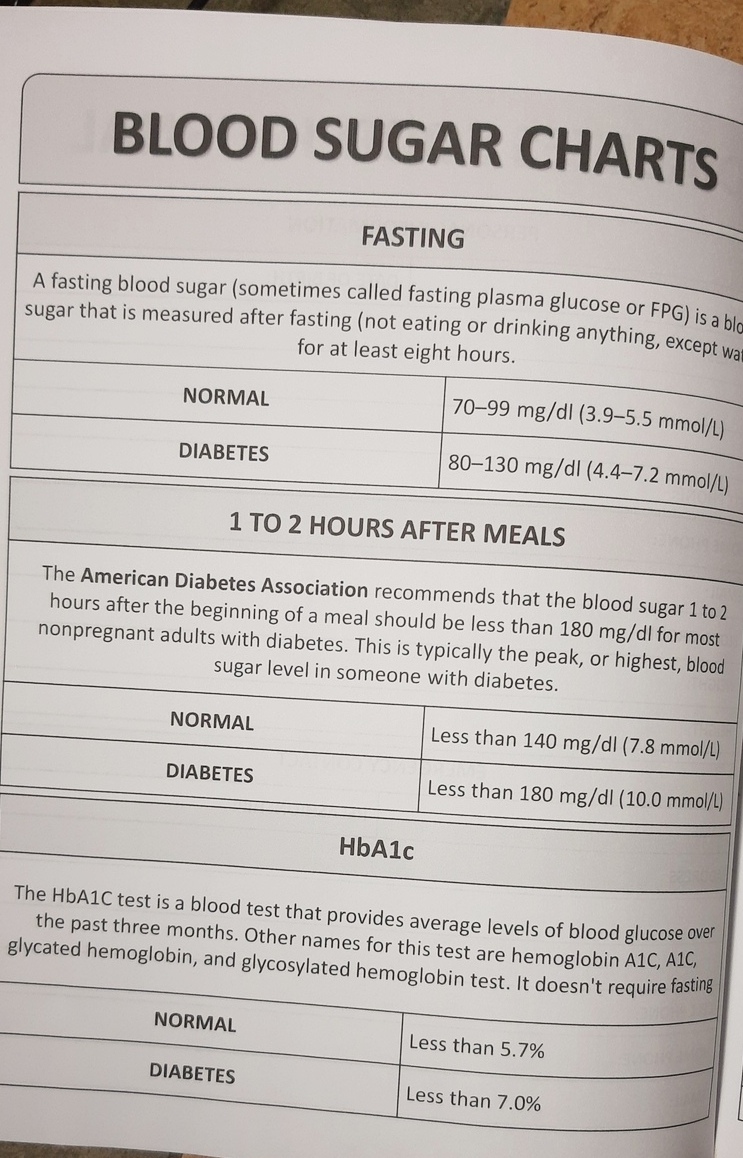
It's also helpful if you have a section in the log book where you can enter in lab test results. Remember, a continuous glucose monitor gives you the current results of what you just ate and that's awesome, but you also need to see the bigger picture of how your body is doing overall. This is essential in your journey to control diabetes.
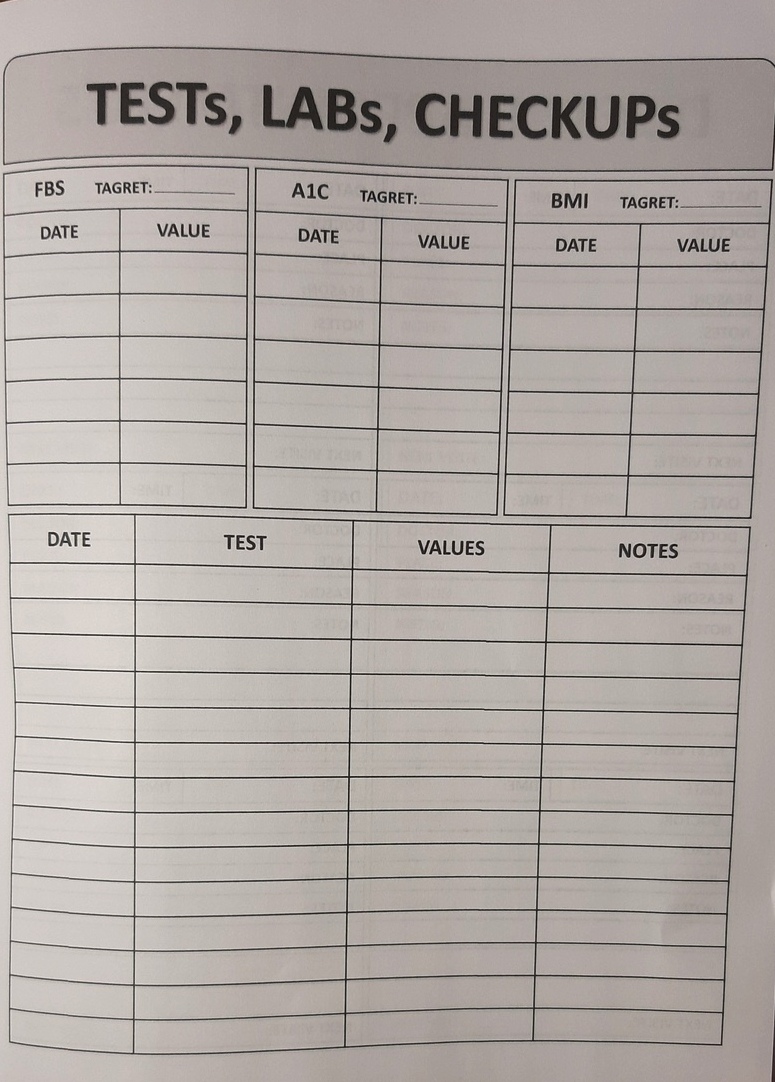
Keeping a glucose log book is an excellent part of your methods and tools to take control of your health. The CGM is such a helpful tool to show you minute by minute how your body is reacting to food. A log book is where you write that down.
Keeping track of your glucose levels is a learning experience. You are learning your own body better. You will start to see patterns and eventually, you won't need to be as diligent with your log book because you will already know what your body is going to do with the foods you eat and the portion sizes.
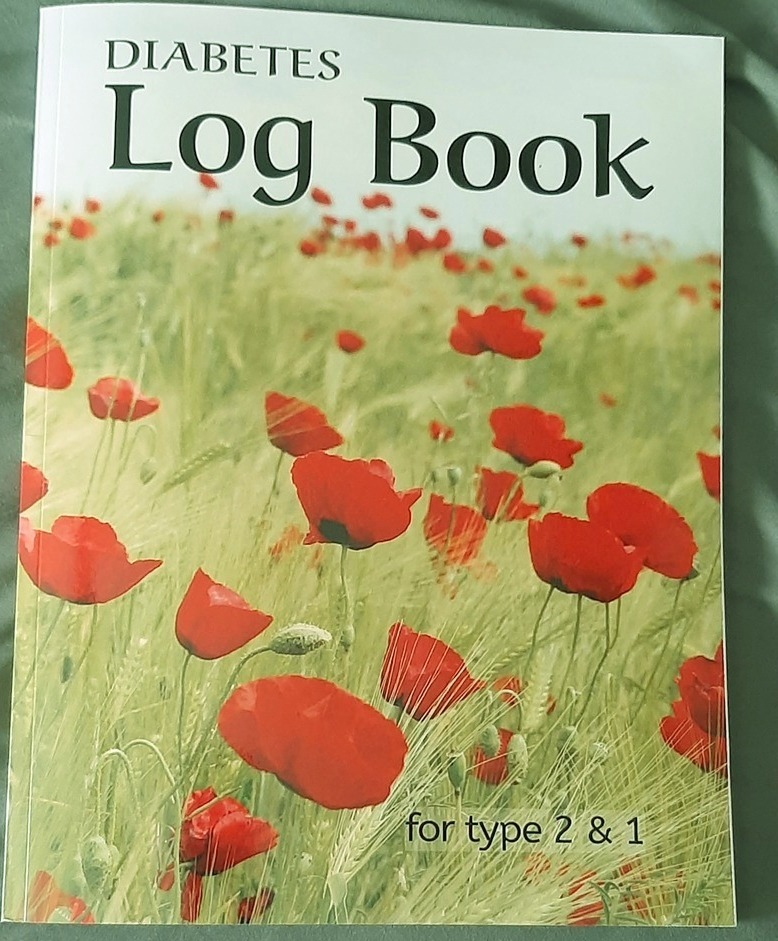
A diabetes food journal can also be helpful to others when they see how you've progressed and documented your journey. I say this because diabetes usually runs in families as a hereditary condition. If you are able to control or prevent hereditary diabetes with proper diet and tools like a CGM, a phone and a log book, you may be an inspiration to family members or friends with the same problems.
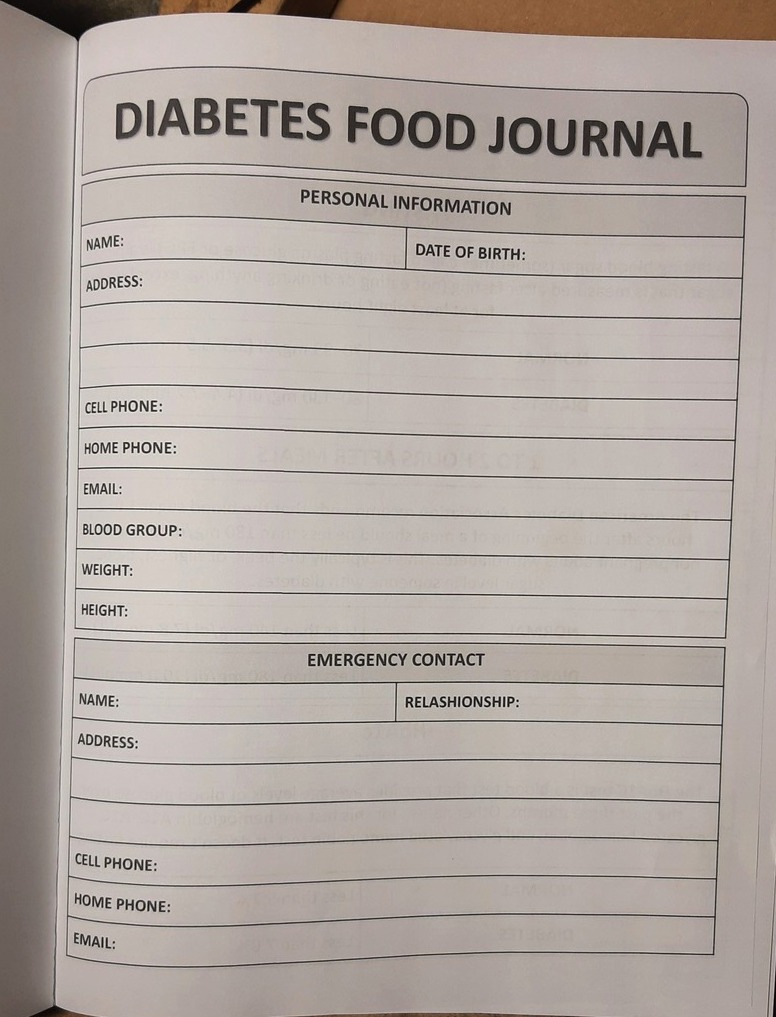
Diabetes is not only hereditary, but it also affects people as they age if they haven't had a proper diet. I see many families with diabetes, but I also see certain aged groups that are likely to be prediabetic or diabetic. Talking about who's on Metformin or other similar meds is a common talking point for people in mid life and beyond.
It is surprising, the amount of people that are prediabetic these days. I guess it really shouldn't be all that surprising because so many of us were careless with how we ate in our younger years and now we are paying the price for it.

Luckily, we are in an amazing time with cool gadgets to help us control diabetes if we really want make the sacrifices necessary to extend the quality of our lives. I think we all have to deal with the irresponsible choices we made in our younger years. As we age, we seem to deal with father time very differently.
I know people in their early sixties that are pretty much at the end of their lives. It's not fair. Genetics has a lot to do with that. Besides genetics though, lifestyle choices in our younger years make a huge difference in how we look and feel now.
I also see people in their nineties still walking and enjoying life. I guess it's pointless to regret past mistakes and to focus on them instead of focusing on ways to improve our health. We can start to make good choices now. It's not that difficult to establish new patterns of shopping, cooking and eating. Once we get these patterns down we continue in that direction. It's an adjustment in behavior that rewards us.
